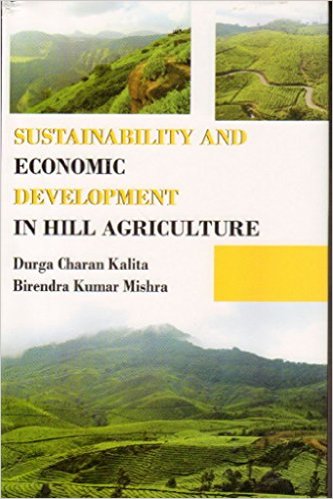Hill agriculture is facing the twin challenges of eco-environmental hazards and loss in productivity. The evelopment of agriculture in hilly areas has been constrained by several factors which include lack of scientifi c land use according to capability, lack of economic and social institutions, lack of incentives, proper training and extension education,loss of support area for the forest dwellers and risk and uncertainty in hill farming system.Farming systems in hills offer vast scope for adoption of a diverse mix of farm enterprises including crop cultivation and vegetable farming, horticulture and livestock. The production potential of hill agriculture has not been exploited fully due to several constraints.
The thirty fi ve papers included in this volume, apart from a few are mainly based on fi eld studies, conducted in the hill areas of North Eastern Region, identify the constraints in the development of hill agriculture and suggest measure to overcome them. Few papers are from the hill areas of other states of the country. Most of the papers deal with agribusiness opportunities, role of NGO’s, resource conservation, homestead agro-forestry, shifting cultivation which seems to have a greater impact on sustainability of hill agriculture.










